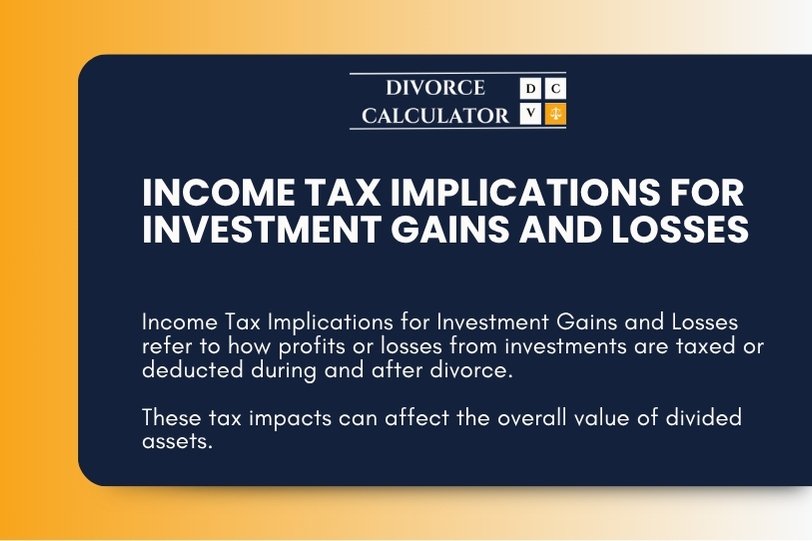Understanding income tax implications is essential for anyone looking to make informed financial decisions. We need to know how different types of income, investments, and deductions can affect our annual tax bill so we can plan effectively and avoid surprises. Many of us discover tax obligations when it’s too late, but a clearer understanding can help us take control.
Whether we are salaried employees, business owners, or investors, tax rules can have a direct impact on our net earnings. The more we understand about brackets, credits, and allowable deductions, the better positioned we are to minimize our tax liabilities and stay compliant.
Let’s explore the practical impact of various income sources and see how our choices throughout the year may influence what we owe—or receive—at tax time.
Key Takeaways
Understanding income tax implications helps us make informed financial decisions. Correct reporting and timely filing are essential to remain compliant with tax laws.
Key Points:
- We must report all taxable income, including wages, investment returns, and rental income.
- Deductions and credits can reduce our taxable income or the taxes we owe.
- Common deductions include mortgage interest and charitable contributions.
| Item | Example |
|---|---|
| Taxable Income | Salaries, Dividends |
| Deductions | Medical Expenses, Tuition |
| Credits | Child Tax Credit |
We should track documentation throughout the year. Keeping accurate records ensures we can claim all eligible deductions and credits if required by tax authorities.
Tax rates may vary based on our income levels, filing status, and local regulations. Staying informed about rate changes each year is necessary.
Failing to comply with tax requirements can lead to penalties or interest charges. Consulting a qualified tax professional can help us address complex tax situations.

Why It Matters In Divorce
When we go through divorce, income tax becomes an important issue that can influence our financial outcomes. The way assets, debts, and even alimony are handled will affect how much tax we owe or what refunds we might receive.
We need to consider the tax consequences of property division. Some assets have built-in tax liabilities, such as retirement accounts and stocks. If we’re not careful, one spouse could end up with a larger tax burden than the other.
Here’s a quick comparison of common income tax considerations in divorce:
| Issue | Potential Impact |
|---|---|
| Alimony | Taxable or deductible |
| Property Division | Capital gains/losses |
| Child Support | Not taxable/deductible |
| Filing Status Change | New tax brackets |
If we receive or pay alimony, current tax law means the payer no longer deducts it, and the recipient no longer pays tax on it (for divorces after 2018 in the US). That changes how both our taxes are calculated.
Our filing status may also change to single or head of household, affecting our tax bracket and possible deductions. We must update our W-4s and plan for new rates.
Property transfers as part of our divorce are generally tax-free at the time, but when we sell those assets later, capital gains taxes could apply. We need to understand these future tax implications when negotiating our divorce settlement.
Proper tax planning can save us from unexpected costs and ensure fairness in property and support arrangements.
Real-Life Examples
One common scenario we encounter is salaried employees receiving a year-end bonus. For instance, if we earn a $5,000 bonus, it is taxed as ordinary income and could increase our total tax liability for the year.
Self-employed individuals face additional considerations. If we run a consulting business and earn $60,000, we pay both income tax and self-employment tax on those earnings.
Let’s look at a simple comparison:
| Source | Income | Tax Type | Notes |
|---|---|---|---|
| Salary | $50,000 | Ordinary Income | Standard withholding applies |
| Freelance | $20,000 | Self-Employment | Requires quarterly payments |
If we invest in stocks and sell shares for a profit, capital gains tax applies. For example, selling an asset after one year qualifies us for long-term capital gains rates, which are typically lower than ordinary income rates.
Owning rental property adds another layer. Our rental income is taxable, but expenses—like mortgage interest and property taxes—may reduce our taxable income.
Receiving inheritances or gifts can also have tax consequences, but in the U.S., recipients usually don’t owe income tax. However, certain income generated from inherited assets, such as dividends, will be taxable to us.
How States Handle Income Tax Implications
Income taxes vary widely across states, both in their rates and their rules. Understanding the differences can make a significant impact on our financial planning and tax responsibilities.
New York
New York imposes a progressive state income tax that ranges from 4% to 10.9%. Our federal taxable income generally forms the starting point for calculating New York income tax, but state-specific adjustments can apply.
Residents of New York City and Yonkers face additional local income taxes, which can further increase our total tax burden. New York also has specific rules for credits and deductions, such as the Empire State Child Credit and tuition deduction.
We need to be mindful of New York’s rules for residency, as part-year and nonresidents may still owe state tax on income sourced from within the state. This can include wages, rental income, or capital gains from sales of New York property.
Payroll withholdings for employees working in New York typically account for both state and local taxes where applicable. For remote or hybrid workers, verifying our tax obligations with regard to days worked in and out of the state is essential, since New York uses a “convenience of the employer” rule for telecommuting.
California
California’s state income tax rates for individuals can range from 1% to 14.4%, among the highest in the nation for top earners. We calculate our state taxes based on our federal adjusted gross income (AGI), with various adjustments and credits specific to California.
Some common deductions—such as for mortgage interest and property taxes—may be limited under state rules, and certain types of income (like Social Security) are not taxed. California offers credits like the California Earned Income Tax Credit (CalEITC) and credits for college access.
If we are residents, we must report and pay taxes on all worldwide income, while nonresidents face taxes only on California-sourced income, such as rental properties or wages earned within the state.
California also uses community property rules for married couples, requiring careful income splitting. With an aggressive enforcement arm, it’s important for us to file accurately and on time to avoid penalties.
Texas
Texas does not have a state income tax for individuals.
We are only responsible for federal income tax, which can simplify our filing process and reduce overall tax liability. However, this absence of income tax may be offset by higher property taxes and sales taxes in the state.
Texas funds state and local services through other revenue sources, so while our income tax paperwork is simplified, we must be aware of other annual obligations. For those relocating from a state with income tax, it’s important to confirm we are fully severing tax residency to avoid paying unnecessary state income taxes elsewhere.
No payroll withholding or quarterly estimated payments are required for Texas state income tax purposes.
Florida
Florida also does not impose a state income tax on individuals.
We enjoy a relatively simple state tax filing requirement, focusing mostly on federal tax matters. As in Texas, higher property taxes and sales taxes may be present to support state revenues.
Establishing Florida residency can result in considerable tax savings for us, but clear documentation, such as obtaining a Florida driver’s license and registering to vote, is usually necessary. We should also consider the impact on our estate and intangible tax concerns, as Florida does not impose inheritance tax or intangible personal property tax.
No additional paperwork or withholding for state income taxes is required, but maintaining consistent records helps defend our status as Florida residents if needed.
Tips If You’re Dealing With Income Tax Implications
Staying organized is essential. We should keep all our income records, receipts, and relevant documents throughout the year. This makes tax filing more accurate and less stressful.
It’s important to know which income is taxable and which isn’t. Wage income, capital gains, and some side earnings usually count as taxable. Gift money or certain inheritances often do not.
To avoid surprises, we might consider estimating and setting aside tax payments in advance. Using the “pay-as-you-go” approach helps prevent large, unexpected bills at tax time.
Consulting a tax professional can help us interpret complex situations. Tax laws change frequently, so it’s wise to ask about any credits or deductions we may qualify for.
Here’s a quick list to check each year:
- Review changes in tax law.
- Update our withholding if circumstances change.
- Store digital and hard copies of tax documents.
- File electronically when possible for faster processing.
If we find errors after filing, we can usually amend our return. Timely communication with tax authorities helps resolve issues faster and avoids penalties.
Let’s remember that deadlines matter. Filing and payment dates are firm, and late submissions can lead to extra fees. Setting reminders can keep us on track.
Frequently Asked Questions
Understanding income tax involves reviewing how particular sources of income are taxed, recognizing non-taxable items, and knowing how to report common transactions. Calculating tax liability requires accurate documentation and awareness of relevant laws.
How is taxable income determined for individual taxpayers?
We calculate taxable income by subtracting allowable deductions from total gross income. These deductions may include contributions to retirement plans, student loan interest, and standard or itemized deductions.
We must also account for all sources of taxable income, including wages, interest, dividends, and capital gains.
What non-taxable income sources should I be aware of?
Some common examples of non-taxable income include gifts, inheritances, and certain life insurance payouts. We also exclude qualified scholarships and some employer-provided benefits from taxable income.
Reimbursements for medical expenses and certain welfare payments typically are not subject to tax.
How can shares be transferred between spouses without incurring tax liabilities?
Transfers of shares between spouses are generally tax-free if they occur during marriage or as part of a divorce settlement. We should properly document these transfers to ensure there are no unintended tax consequences.
Transfers due to death typically receive a stepped-up cost basis, reducing future capital gains for the recipient spouse.
What are the implications of having a side hustle on personal income taxes?
Income earned from freelance work or gig economy activities must be reported on our tax return even if not accompanied by a formal tax document like a W-2. We are responsible for self-employment taxes, which cover Social Security and Medicare.
We can deduct ordinary and necessary business expenses to reduce taxable income from side activities.
How can one calculate federal income taxes owed for the current year?
We begin by totaling all sources of taxable income and subtracting above-the-line deductions and either the standard or itemized deduction. After applying the appropriate tax rates for our filing status, we reduce the result by any eligible credits.
Reviewing IRS tables and using tax software or withholding calculators assists in estimating amounts owed accurately.
What are some common examples of tax implications for typical financial transactions?
Selling investments for a profit triggers capital gains tax, while early withdrawals from retirement accounts may result in penalties and income tax. Gifts above the annual exclusion may require filing a gift tax return.
Home sales may qualify for capital gains exclusions if certain conditions are met, but not all transactions are treated the same for tax purposes.



